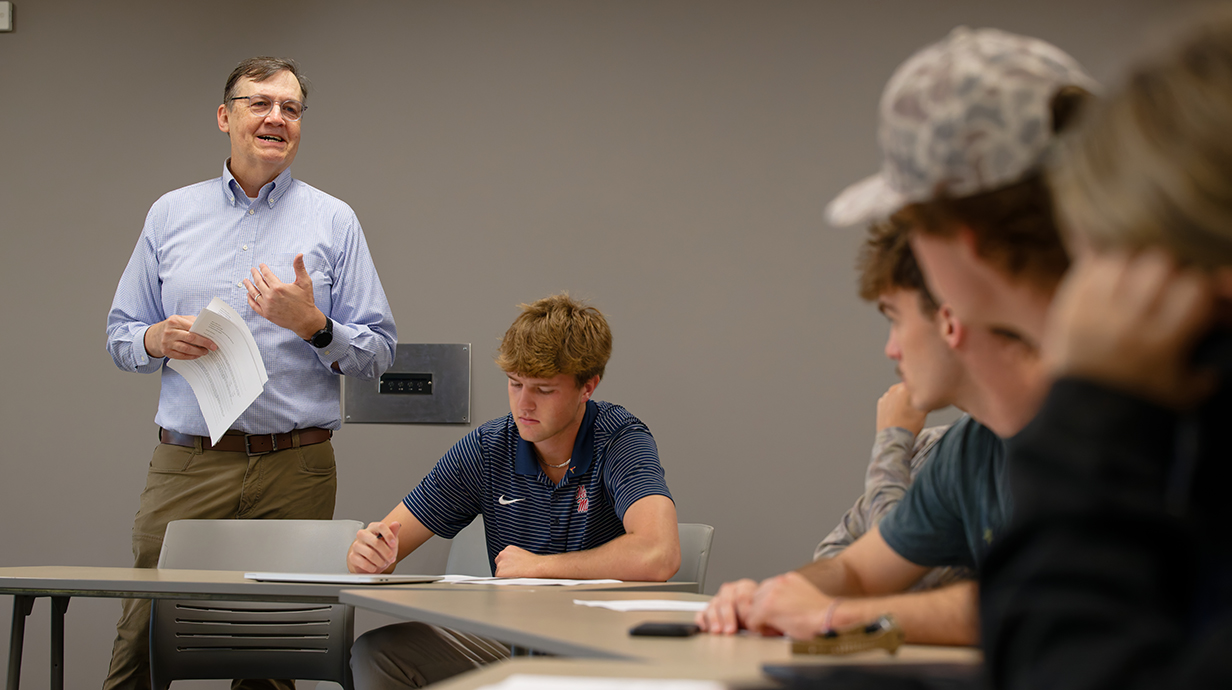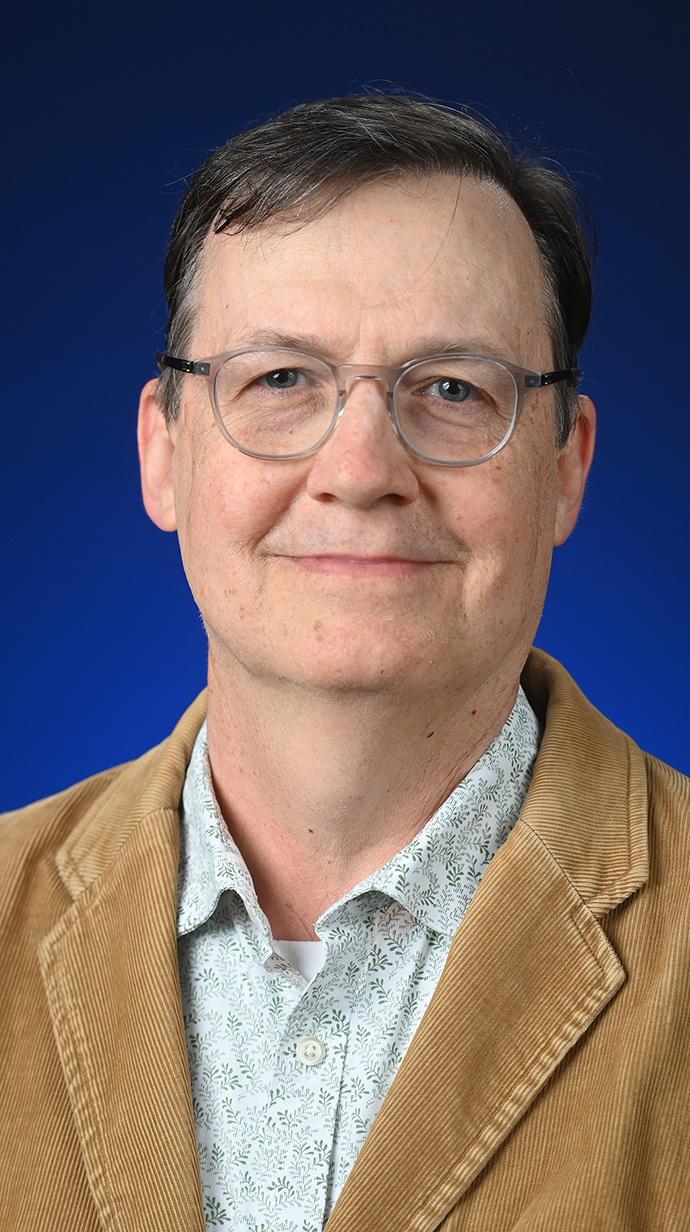Professor to Share AI Teaching Insights on World Stage
Robert Cummings joins scholars, spiritual leaders for 'Minds, Artificial Intelligence and Ethics' event

OXFORD, Miss. – University of Mississippi professor Robert Cummings will join an international group of scholars, scientists and Buddhist teachers this month in Dharamsala, India, for the Mind and Life Institute's "Minds, Artificial Intelligence and Ethics Dialogue."
The event, hosted in coordination with the Dalai Lama Trust and the Private Office of the Dalai Lama, runs Oct. 14-16 and explores the risks and untapped potential of artificial intelligence technology from a global, human-centered lens, said Cummings, executive director of the university's Academic Innovations Group.
"There's this rush in the AI development community to produce the most powerful AI tech possible, regardless of its consequences or how those downstream effects impact people who were not part of the decisions during development," he said.
"This conference asks, from the outset, a series of ethical questions that seem to automatically be bypassed, sometimes in a capitalist society."
Education is one of five topics that form the foundation of the discussion that will blend research, policymaking and meditative traditions.

Cummings, professor of writing and rhetoric; Ani Choyang, a Tibetan nun and science teacher at Jangchub Choeling Nunnery in Mundgod, India; Marieke van Vugt, associate professor in the cognitive modeling group at the University of Groningen in the Netherlands; and Chiara Mascarello, researcher at Ca'Foscari University of Venice, will each deliver presentations on the effects of AI on education and how prioritizing ethics may help guide its use.
"For nearly 40 years, Mind and Life has convened dialogues at the intersection of science and contemplative wisdom to help humanity meet the challenges of our time," said Suzanne Bond, the institute's president.
"As artificial intelligence reshapes our world, this gathering offers a vital space to reflect together on how we can infuse technology with compassion, ethics, and a commitment to the flourishing of all."
A digital writing researcher, Cummings studies how predictive writing tools, such as Google Smart Compose, influence users' creativity and cognition. These resources can interrupt students' thought processes and skill building when suggesting ideas to complete sentences before their own ideas fully form, he said.
At the conference, he will focus on AI use at American colleges and universities, problems with banning AI outright, evidence-based teaching strategies from the AIG team at Ole Miss and concerns about college student well-being.
"The advent of agentic AI and increasingly more emotional AI will become an even bigger issue this year, possibly resulting in mental health effects," he said.
"People are reaching out to these AI-powered chatbots, which seem like a private conversation, for things it was never intended to give, such social advice, emotional support and replacing mentorships and friendships."
A Wiki Education board member, Cummings visited India about 14 years ago on a professional trip. In 2011, he met Thich Nhat Hanh during the Vietnamese monk's visit to Magnolia Grove Monastery in Batesville.
Though not a follower of Buddhism, Cummings looks forward to another chance to embrace India's beauty, food and mindful culture.
His invitation to Dharamsala includes several rare tour opportunities, including a potential visit to the private residence of the 14th Dalai Lama, who is celebrating his 90th year.
Each session will be livestreamed and includes time for intentional reflection before moving to moderated discussion with the audience.
For Cummings, this structure mirrors his own call for mindfulness in education in our digital age.
"I encourage students to use AI tools for specific purposes and then pause to reflect on the results," he explained. "That reflection is what turns technology into a learning opportunity rather than a shortcut.
"I can't imagine a more essential conversation that we need to be having. This is a technology that is important for everyone across the globe to understand and to have some sort of self-determination in how they interact with it."
To register for the conference livestream, click here.
Top: Robert Cummings (left), professor of writing and rhetoric and executive director of the UM Academic Innovations Group, shares a lesson with his Writing 101 students. This scholar of digital writing research is one of the only American educators sharing their artificial intelligence expertise this month at a conference in India. Photo by Hunt Mercier/Ole Miss Digital Imaging Services
By
Marvis Herring
Campus
Office, Department or Center
Published
October 06, 2025
